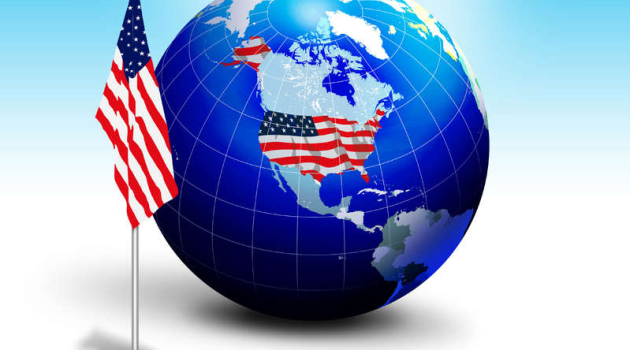When looking at which nations have the best economic policy, the best options are the Fraser Institute’s Economic Freedom of the World and the Heritage Foundation’s Index of Economic Freedom.
But I also look forward to other measures, including the annual competitiveness ranking from the Swiss-based IMD business school, which was just released this month.
We’ll start with a look at the top nations. Singapore remains the most competitive nation, while Denmark made a big jump to #2, and Switzerland climbed a notch to #3.
The United States, which was 3rd last year, dropped to #10.
Only 63 nations are part of the survey, and no sentient being should be surprised about Venezuela being in that final spot. Nor should there be much surprise that Argentina is next-to-last.
Here are some highlights from the accompanying article.
The annual rankings, now in their 32nd year, have been released unlocking a wealth of data on the performance of 63 economies across the globe. Singapore was number one for the second year in a row. In second to fifth place, in order, came: Denmark,
Switzerland, the Netherlands and Hong Kong SAR. A marked pattern in this year’s results, which are an amalgam of hard data taken from 2019 and survey responses from early 2020, is the strength of smaller economies. …The number of small economies – broadly defined as such by their GDP – in the top ten is striking. However, this is not to say that we are seeing a triumph of democracies. Singapore, Hong Kong and the UAE remain in the top ten, whilst some democracies (such as Argentina) sit at the bottom of the scale.
Here are some of the more interesting observations about specific nations.
China this year dropped to 20th position from 14th last year.
My two cents is that China is still overrated.
But I sadly concur that the trendline for Hong Kong is not overly encouraging.
While Hong Kong SAR came in at 5th, this is a far cry from 2nd which it enjoyed last year. The decline can be attributed to a decline in its economic performance, social turmoil in Hong Kong as well as the rub-on effect of the Chinese economy.
It’s worth noting that Brexit is helping the United Kingdom, which is exactly what I predicted.
The UK climbed from 23rd to 19th… One interpretation is that Brexit may have created the sentiment of a business-friendly environment in the making. The UK ranked 20th on the business efficiency measure, compared to 31st least year.
But I take no satisfaction in my predictions that Trump’s protectionism would backfire on the United States.
…For the second year in a row, the USA failed to fight back having been toppled from its number one spot last year by Singapore, and coming in at 10th …Trade wars have damaged…the USA.
In a column for Forbes, Stuart Anderson elaborates on America’s decline.
America used to be number one but not anymore, according to the 2020 rankings of the world’s most competitive economies from the Institute for Management Development (IMD) in Switzerland. The Trump administration’s trade policies are the primary reason given for why America fell from 2018,
when it was ranked number one, and from 2019, when it was ranked number three. …Christos Cabolis, IMD’s chief economist and an author of the report, told Fortune that Trump’s trade policies are the main reason for the significant drop in American competitiveness. “One of the pillars of competitiveness is how open an economy is, and we measure that in different ways, from the perceptions of executives, to trade [statistics],” said Cabolis. The trade war Donald Trump initiated with China “brings some of the results we see in how the numbers of the U.S. went down,” he said.
Let’s close with a closer look at IMD’s estimates of what’s good and bad about the United States.
We get very good (though declining in this year’s ranking) scores for economic performance and infrastructure (suggesting, by the way, that we don’t need a new boondoggle package from Washington).
But we’re not quite as impressive when looking at business efficiency and we’re mediocre when measuring government efficiency.
For what it’s worth, I’m not optimistic about America’s trajectory. If Trump gets reelected, I don’t expect big developments in the policy areas where he’s good (taxes and red tape), but I wouldn’t be surprised to see new initiatives in the areas where he is bad (trade and spending).
Biden, meanwhile, has a very statist policy agenda. So if he gets elected, we have to cross our fingers that he doesn’t really believe in his Bernie-lite agenda.
P.S. It is possible, of course, for a nation to adopt additional bad policy and still climb in the rankings. All that’s required is for other nations to adopt an even-greater amount of bad policy. Needless to say, that’s not the ideal way to climb a few spots. Which is why we should consider absolute and relative measures of economic liberty.



